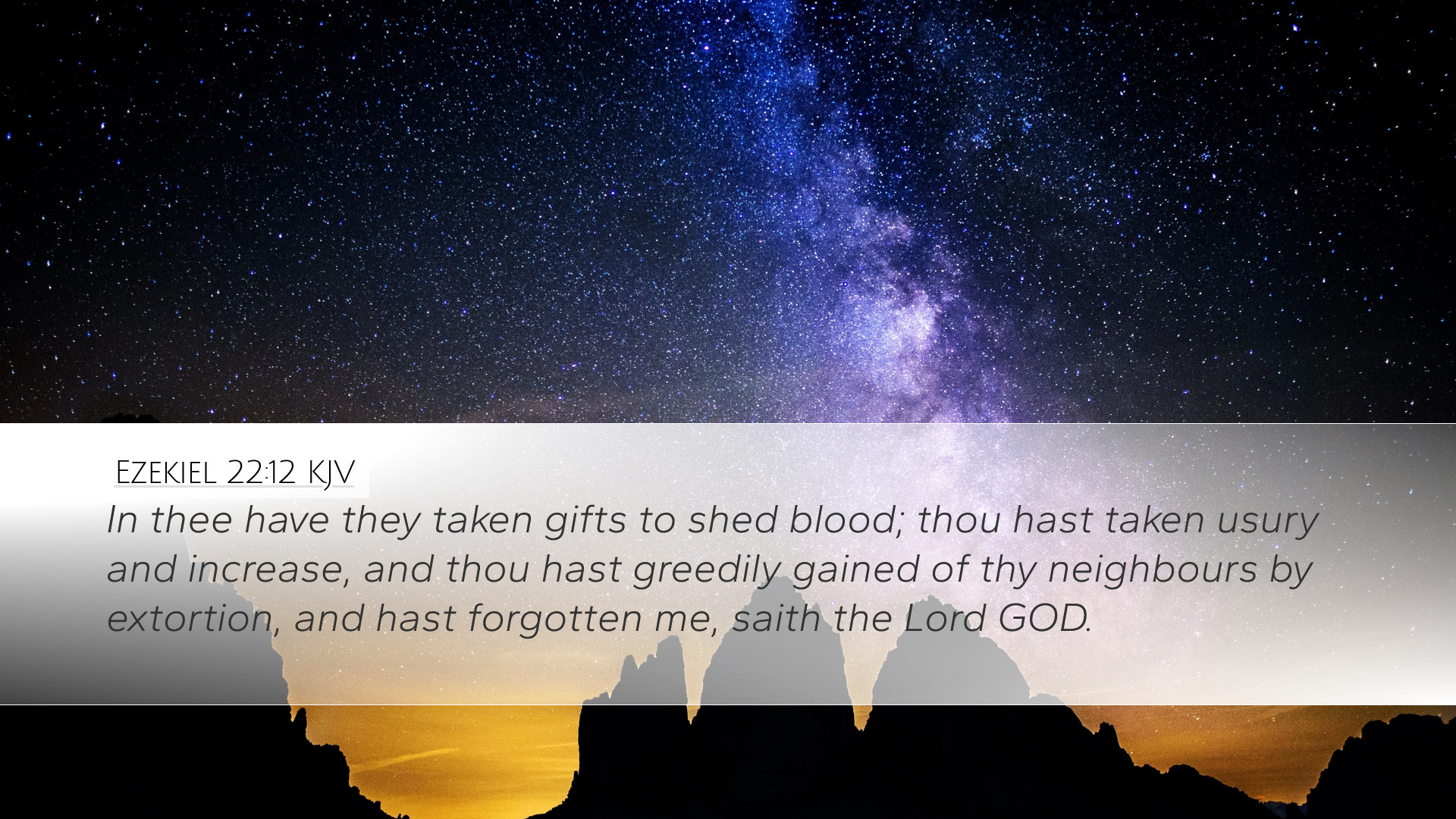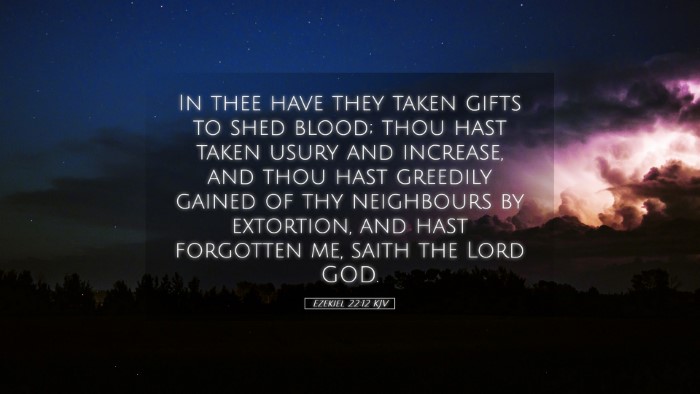Ezekiel 22:12 Commentary
Ezekiel 22:12 states: "In thee have they taken gifts to shed blood; thou hast taken usury and increase, and thou hast greedily gained of thy neighbors by extortion, and hast forgotten me, saith the Lord God." This verse serves as a powerful indictment against the moral and spiritual corruption of Jerusalem. The following commentary provides insights from various public domain sources, including Matthew Henry, Albert Barnes, and Adam Clarke, to explore the depth of meaning contained within this verse.
Contextual Background
Ezekiel is a prophet during the Babylonian exile, addressing the sins of Israel, particularly Jerusalem. The chapter outlines various transgressions among the people, which resulted in divine judgment. The verse in question highlights specific sins related to corruption, greed, and a blatant disregard for God's commands.
Analysis of Key Themes
1. The Sins of the People
In this verse, Ezekiel condemns the practice of taking "gifts to shed blood," indicating a willingness to engage in violence for the sake of personal gain. Matthew Henry notes that the phrase alludes to bribery and injustice, prevalent among both leaders and citizens. Such actions betray a heart completely alienated from God’s justice.
2. Usury and Extortion
The verse continues with the mention of "usury and increase"; this refers to the unjust interest charged on loans, which was expressly forbidden in the Law (Exodus 22:25; Leviticus 25:36). Albert Barnes emphasizes that the demand for excessive interest indicates not just greed but a lack of compassion and brotherhood among the people.
3. The Neglect of God
The phrase "hast forgotten me" serves as a tragic conclusion to the sins listed. Adam Clarke highlights that forgetting God leads to the moral decay of society. The people’s failure to recognize or remember their covenant relationship with God resulted in ethical corruption and a departure from divine justice.
Theological Implications
The theological lessons are profound. This verse illustrates the dangers of relying on material gain and corrupt practices. It signifies that God’s judgment is not solely based on ceremonies but on the ethical behaviors of individuals.
1. Divine Judgment
The declaration by God that He sees these transgressions underscores a fundamental principle: God's awareness of human actions. Matthew Henry explains that God’s judgments will not only address acts of blasphemy and idolatry but also injustices that go unnoticed by society.
2. The Call to Repentance
Ezekiel's message calls for a return to God’s standards as a means of escaping judgment. Albert Barnes implies that acknowledgment of sin must precede genuine repentance and restoration. The people are urged to remember their covenant with God as a pathway back to righteousness.
Practical Applications
For pastors and theologians, this verse challenges contemporary ethical and moral practices within the church and society. It serves as a reminder that neglecting God's commandments results in dire spiritual consequences.
- Upholding Justice: Leaders and followers alike are called to maintain justice in their dealings with one another, echoing the Biblical call against usury and exploitation.
- Remembering God: Daily life should reflect a continual remembrance of God’s stature in society. Regular engagement with Scripture and prayer fosters a deeper awareness of God’s presence.
- Addressing Corruption: The church holds a prophetic role in addressing societal issues, speaking out against injustices and encouraging integrity among its members.
Conclusion
Ezekiel 22:12 serves as a poignant reminder of the consequences of turning away from God and engaging in sinful practices. By examining the insights from Matthew Henry, Albert Barnes, and Adam Clarke, we see a holistic view of the spiritual and ethical implications surrounding this verse. It not only calls for personal reflection but also urges collective action towards repentance and restoration within the community. Ultimately, the lessons from this verse challenge believers to embody justice and righteousness as a testament to their covenant with God.


